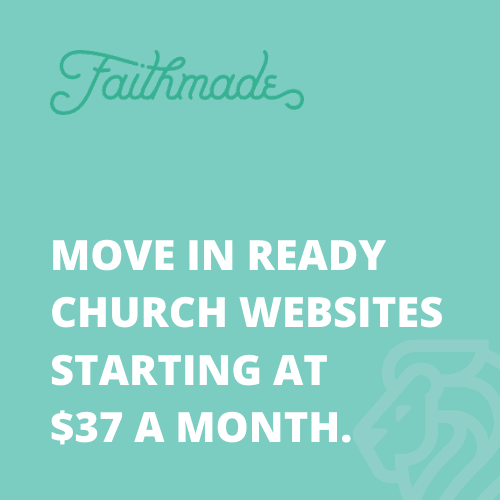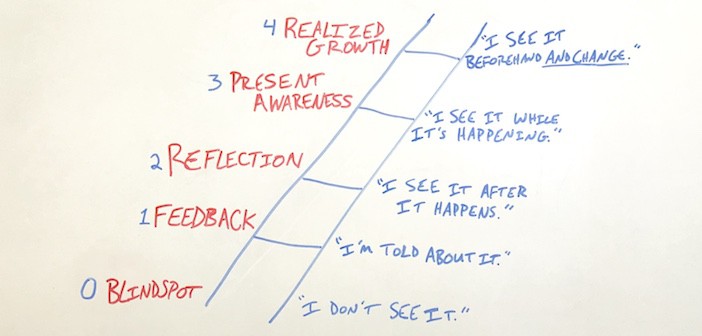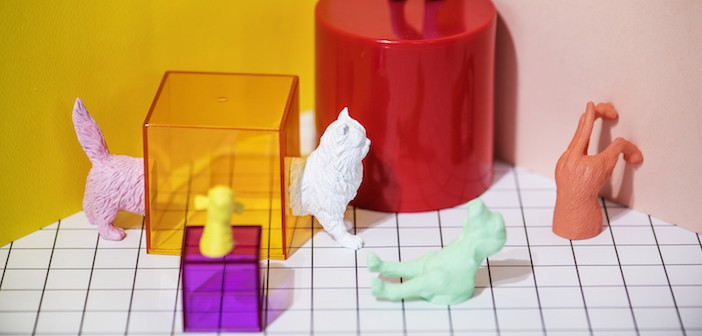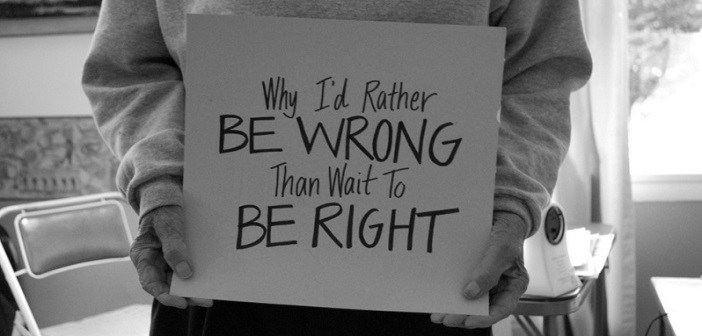Early in my leadership, I had several great mentors who were always willing to provide me great feedback. I was hungry to learn how I could be better and regularly asked them where they saw opportunity for growth. And they were great mentors! Wise enough to see the flaws that were holding me back. Caring enough to tell me what I didn’t want to hear. Confident enough to speak directly and not leave me guessing.
These sources of input were an incredible gift to me as a young leader. But despite my desire to grow, I had a serious problem…
Every time I received feedback, I felt worse about my leadership.
On the outside, I would say, “thank you,” and smile. But internally, I would beat myself up with negative self-talk…
“I’m not as good as I thought I was!”
Negative feedback is not a setback. It’s the starting point for moving forward.
We Oversimplify Leadership Growth in Our Minds
The way we talk about leadership growth is far more basic than reality. We categorize everything about ourselves into two simplistic columns: strengths and weaknesses. Until a weakness is overcome and we’ve mastered a new skill, we remain discouraged by that aspect of our leadership.
Leadership growth, however, is far less binary and far more of a journey. It is a process that involves steps of small growths over time. Rather than waiting until we’ve “crossed the finish line” to celebrate growth, we should acknowledge our progress at each stage of the journey. But in order to celebrate, we must adopt a new paradigm for growth; one that acknowledges a variety of stages between “weakness” and “strength.”
5 Stages of Leadership Growth
Stage 0: Blindspot // “I Don’t See It.”
In Stage 0, we are completely unaware of a weakness holding us back. The people around us likely pick up on it every now and then. But until someone directly points it out, we’re left completely in the dark.
It’s Stage “0,” because we’ll remain stuck in this stage for an indefinite amount of time, potentially forever. Until someone presents with a clearer picture of reality, ignorance truly is bliss.
(This reminds me of the time someone showed me ways in which I waste time in meetings. If he had not pointed it out, I’d still be stuck making the same mistakes today!)
Stage 1: Feedback // “I’m Told About It.”
This is the point at which someone has shared negative feedback with us. It’s also the point at which we can feel worse about our leadership. But the truth is that our leadership just got better in this moment.
You’re not worse a leader just because you now know about your weakness. You’re a better leader because you’re now positioned to solve a problem you didn’t even know existed. Rather than beating yourself up, pause to celebrate the fact that you just took another step toward becoming a better leader! We cannot be afraid to learn more truth about ourselves.
Stage 2: Reflection // “I See It After It Happens.”
Once we receive feedback, the next stage typically involves identifying our weakness ourselves after it affects us. For example, after receiving feedback on ways I can waste time in meetings, I found myself assessing meetings after they happened and realizing just how much I had wasted. Again, my natural tendency is to respond with negativity at this point. After all, I’m still doing that thing someone else informed me of!
But this is an important stage of reflection; an opportunity to ask questions like…
“Why do I do that in those moments?”
“What holds me back from leading differently?”
It is only through these self-assessments that we can identify what is actually driving our weakness. For example, my value for relationships, which can be a strength, can also cause me to over-socialize and under-lead in group settings. It was only through self-reflection after seeing my own weakness in action that I was able to identify what was driving it. The same is true for all of us.
Stage 3: Present Awareness // “I See It While It’s Happening.”
At this stage of the growth journey, we become more aware of our known weakness in the moment. We catch ourselves making mistakes as we are making them. There may not be enough time to course-correct. But our level of awareness just shifted in real-time. This can become a distraction if we let it, beating ourselves up in the moment for not having grown yet. But in reality, this new level of “real-time self-awareness” is growth in itself! We should celebrate it knowing that we’re further along.
Stage 4: Realized Growth // “I See It Beforehand and Change.”
This is the pinnacle of the leadership growth journey: the ability to see our weaknesses before they affect us and do something about them. With new foresight, you can develop a game plan before entering a situation in which you expect the weakness to show up. You’ve effectively minimized the weakness by training yourself to expect it and adjust.
Why We Beat Ourselves Up
Unfortunately, we tend to view leadership growth as a single step, as if we can jump from Stage 0 to Stage 4 overnight. We often fail to acknowledge the space in between and miss out on celebrating the fact that we are growing through the process. When we fail to acknowledge Stages 1-3, we spend months beating ourselves up over an issue because we’re still struggling with it. In reality, we’re moving forward even if we haven’t arrived. I think that progress is worth celebrating along the way.
Think about the areas of growth you’re currently focused on in your leadership. Which stage are you currently operating within? Have you allowed yourself to celebrate your progress on the journey?
What about the people on your team? Which stage are they each in as you’ve been coaching their leadership? Are you celebrating their progress into new stages? Or allowing them to stay frustrated that they’ve not yet arrived?
It’s the celebration of progress (not perfection) which provides the energy we need to keep growing.



